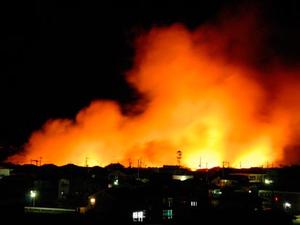DisastersJapanese government, Tokyo Electric blasted for handling of Fukushima
A recent report revealed that Japan’s response to the nuclear crises at the Fukushima Daiichi atomic energy plant following the devastating 11 March earthquake and tsunami was riddled with false assumptions, miscommunication, and poor planning

Report castigates Tepco and Japan's central government for exacerbating the crisis // Source: aotrangoi.com
A recent report revealed that Japan’s response to the nuclear crises at the Fukushima Daiichi atomic energy plant following the devastating 11 March earthquake and tsunami was riddled with false assumptions, miscommunication, and poor planning.
The 507-page interim report, completed by a government-appointed investigative committee, blamed Japan’s central government as well as Tokyo Electric Power Company (Tepco), the plant’s operator for exacerbating the nuclear crisis.
For instance plant workers erroneously assumed that an emergency cooling system had been in operation immediately following the tsunami even though numerous warning signs pointed to its failure. As a result of this incorrect assumption, engineers waited several hours before beginning to come up with alternative ways to bring desperately needed water to cool the rapidly overheating reactors.
The report did note that even had the emergency cooling system functioned properly, the damage from the earthquake and tsunami was so severe that meltdowns would still have occurred. However a faster response may have reduced the extent of core damage, minimized radiation leakages, and prevented the hydrogen explosions that sent dangerous plumes of radioactive smoke into the atmosphere.
More troublingly, investigators found that Tepco employees had not been trained to handle emergencies like a tsunami knocking out its cooling systems. Lacking a guideline to follow, employees failed to communicate with the government and among themselves.
The report also faulted the utility and government officials for their failure to plan for such a catastrophic natural disaster. Officials had only anticipated for a twenty foot tsunami wave, while in actuality the wave that struck Japan was more than twice as high.
Investigators criticized officials for their use of the term “soteigai,” which means beyond imagination, suggesting that the authorities were seeking to avoid responsibility by suggesting the natural disaster was beyond what they had anticipated.
“This accident has taught us an important lesson on how we must be ready for soteigai,” the report said.
In addition, investigators concluded that the government had not been forthcoming with information regarding the disaster and purposely used evasive language to downplay the seriousness of the situation at the nuclear facility. The government also delayed critical data, which stalled the evacuation of towns and unnecessarily exposed residents to radiation.
As a result of the government’s dubious release of information, residents continue to live in fear of the radiation released into the air and water. The Japanese people have also developed a new-found skepticism of government officials, preferring to find alternative news sources rather than trusting spokesmen for the government.
With thousands living in temporary housing, millions of gallons of radioactive water, and miles and miles of contaminated soil, the report concluded that the “nuclear disaster is far from over.”
The investigative panel’s final report is expected to be completed by mid-2012.
